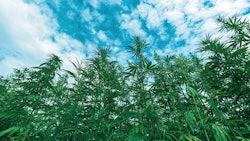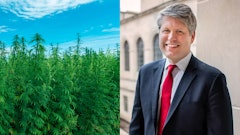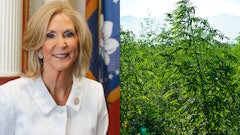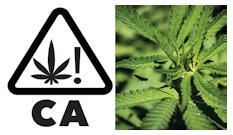
Consumer protection concerns regarding the increasing sales of intoxicating hemp products continue to grow. Faced with an ambiguous regulatory landscape that has created a patchwork of enforcement and compliance challenges, state-level interventions aim to address the gaps left by the lack of federal regulations, ensuring consumer safety and market stability in the burgeoning hemp industry.
State attorneys general are not waiting on the federal government to provide clarity. At least eight Attorneys General—from both sides of the political aisle—have announced steps their offices are taking to address consumer safety in their states through a myriad of enforcement actions, attorney general opinions, and defending state laws. Even if laws are passed by Congress, state attorneys general will continue to maintain their active role in enforcing state consumer protection laws and any current or subsequent state laws regulating intoxicating hemp products.
Background: Where Did This Start?
Before we delve into the details on enforcement actions, it’s important to understand how this market for intoxicating hemp-derived cannabinoids developed seemingly almost overnight.
Hemp and marijuana are both derived from the same species of cannabis plant—the Cannabis sativa L. plant. The legal difference is currently dictated by the definition of hemp in The Agriculture Improvement Act of 2018 (the 2018 Farm Bill), which sets forth legality by definition. Specifically, the 2018 Farm Bill defines hemp as: “the plant Cannabis sativa L. and any part of that plant, including the seeds thereof and all derivatives, extracts, cannabinoids, isomers, acids, salts, and salts of isomers, whether growing or not, with a delta-9 tetrahydrocannabinol [THC] concentration of not more than 0.3 percent on a dry weight basis.” This definition implicitly requires the testing of cannabis on a dry weight basis, and only testing for delta-9 THC, because delta-9 THC is the main psychoactive compound in cannabis, and the most widely known and consumed.
This legislative change was intended to promote the cultivation of hemp for industrial purposes, and initially manufacturers extracted cannabidiol (CBD), a non-intoxicating cannabinoid found in hemp, to make products. While hemp plants are required to contain low levels of delta 9-THC (0.3% or less), hemp manufacturing companies have recently been synthesizing other cannabinoids from hemp (e.g., delta-8 and delta-10, which are both naturally occurring in hemp but in very small amounts, and HHC and THCO). .
The 2018 Farm Bill's definition of hemp resulted in what many have called a “loophole” that allows intoxicating hemp products to be sold legally, as long as they meet the delta-9 THC threshold for hemp when tested on a dry weight basis. This has left a regulatory void, as the federal government has not provided comprehensive guidelines on the production, sale, and consumption of these products.
Since 2018, intoxicating hemp products including cannabinoids, such as delta-8 THC, have surged in popularity. Delta-8 THC is a cannabinoid found in trace amounts in hemp but can be synthesized from CBD extracted from hemp. Unlike CBD, delta-8 THC has psychoactive properties, albeit milder than delta-9 THC.
Intoxicating hemp products are often marketed as legal alternatives to marijuana and sold as consumables for inhalation or ingestion (e.g., gummies, beverages, vape products). These products are readily available in various retail outlets, including gas stations, convenience stores, and even bars, and many have not been tested for chemicals that can be harmful to human health. The lack of federal regulation has led to concerns about the safety, quality, and marketing of these products, which can be easily accessed by minors and unsuspecting consumers.
Response at the Federal Level
The Food and Drug Administration (FDA) has been slow to establish clear regulations or guidance, leading to a patchwork of state laws and a burgeoning market of unregulated products. For example, on April 11, 2024, the FDA Commissioner’s testimony before Congress stated:
“In January 2023, FDA concluded that the existing regulatory pathways for foods and dietary supplements are not appropriate for [CBD]. However, we recognize that consumers want access to these products. That is why FDA announced that the Agency is prepared to work with Congress on a new regulatory pathway that would provide access, safeguards, and oversight over products containing CBD in ways that existing pathways cannot. Under the Federal Food, Drug, & Cosmetic Act, any substance, including CBD, must meet specific safety standards to be lawfully marketed as a dietary supplement or food additive. The use of CBD raises safety concerns, especially with long-term use. Studies have shown evidence of liver toxicity, interactions with certain medications and possible harm to the male reproductive system. CBD exposure is particularly concerning for children and during pregnancy. Accordingly, FDA has concluded that a new regulatory regime is needed, which could encourage better information to inform consumers about their choices. In the meantime, FDA continues to assess the evolving information base and build awareness for Americans.”
Currently, there are at least 50 bills before Congress that address hemp in some manner. Importantly, the 2018 Farm Bill was set to expire in 2023, but Congress extended it until September 30, 2024. Congress is currently working on a bill to reauthorize the 2018 Farm Bill and, as described by the Congressional Research Service, the June 2024 draft of the bill included the amendment proposed by Rep. Mary Miller, R.-Ill., which would redefine the existing statutory definition of hemp (7 U.S.C. §1639o) by replacing language basing the legal limits for hemp on its delta-9 tetrahydrocannabinol (delta-9 THC) concentration and instead basing the definition on hemp’s “total tetrahydrocannabinol” [total THC] (including tetrahydrocannabinol acid (THCA]) concentration.” Other statutory language regarding hemp “derivatives, extracts, cannabinoids, isomers, acids, salts, and salts of isomers, whether growing or not” would remain unchanged.
The amendment specifies that hemp would exclude non-naturally occurring synthetic and intoxicating products (i.e., allows only naturally occurring or derived nonintoxicating products). While the amendment does not define intoxicating, it would prohibit hemp cannabinoid products with “quantifiable amounts” of total THC (including THCA) or any other cannabinoids that have (or are marketed to have) “similar effects on humans or animals” as THC, as determined by USDA. This would not prohibit all hemp cannabinoid products, such as CBD, but would require determinations by USDA based on available scientific research and quantification methods. This approach recognizes the rapidly evolving landscape of hemp derivatives. The amendment further adds a statutory definition of a hemp cannabinoid product that would exclude those derived from industrial hemp.
And the Miller amendment specifies that the legal limits would be based on total THC (THC and THCA) of not more than 0.3% in the plant on a dry weight basis. If these amendments become law, it would be federally illegal to sell intoxicating hemp products.
For its part, the Drug Enforcement Agency’s position is that, for purposes of enforcing the current hemp definition, the delta-9 THC level must account for any delta-9 THCA in a product, and that cannabis-derived THCA does not meet the definition of hemp because, upon conversion, it is equivalent to delta-9 THC.
In the background of these actions, a bipartisan coalition of 20 state attorneys general urged Congress in March 2024 to address the glaring vagueness created in the 2018 Farm Bill that has led to the proliferation of intoxicating hemp products across the nation.”
Response by State Legislatures
While still the minority, some state legislatures have passed laws to curb access to unregulated intoxicating hemp products. For example, in 2023, Virginia passed a law prohibiting the retail sale of intoxicating hemp products that contain more than 0.3 percent total THC (including delta-8, delta-9, and other forms of THC) and more than two milligrams of total THC per package unless the product’s CBD to THC ratio is at least 25 parts CBD for every one part THC. From July 2023 to June 2024, the state agency responsible for enforcing the law has assessed over $10 million in civil penalties and collected over $430,000 in penalties.
As another example, in 2023, Colorado passed a law that classified hemp- and marijuana-derived compounds and cannabinoids into three classifications—nonintoxicating cannabinoids, potentially intoxicating cannabinoids, and intoxicating cannabinoids. Intoxicating cannabinoids derived from hemp via synthetic conversion cannot be sold in Colorado, and marijuana licensees will face revocation if these types of products are utilized. But a multitude of states have started passing legislation to ensure public safety.
State Attorneys General Take Action
In response to the perceived regulatory void, state attorneys general have not only called on Congress to take action but are stepping in to address the challenges posed by intoxicating hemp products.
- In June and July, the Nebraska Attorney General announced six settlements in his Office’s statewide campaign to clean up the delta-8 THC retail market. These settlements contain prohibitions on the sale of hemp products that contain synthetic THC or have been adulterated with synthetic THC, including delta-8 THC, delta-9 THC, and delta-10 THC that have been modified through chemical processes and enhanced penalties for future violations. In announcing these settlements, the Nebraska Attorney General emphasized, “Our fight continues, and more lawsuits will be filed as we broaden our campaign.”
- In June, the Colorado Attorney General filed a lawsuit pursuant to the Colorado Consumer Protection Act against a Colorado company after an investigation found the company illegally sold cannabis products marketed as federally legal industrial hemp.
- In April, the Missouri Attorney General issued subpoenas based on violations of the state’s consumer protection act – which generally prohibits corporate deception and misrepresentations and is not focused on regulating cannabinoids.
- In March, the Arizona Attorney General issued an opinion concluding that Arizona law does not permit the sale of delta-8 and other hemp-synthesized intoxicants by entities that have not been licensed by the state, regardless of delta-8’s status under the 2018 Farm Bill.
- Since June, the Iowa Attorney General and Solicitor General have been defending the state in a lawsuit brought by hemp retailers, farmers, manufacturers, and distributors asking a federal court to block a state law imposing stringent requirements on the sale of intoxicating hemp products.
- In February 2023, the Connecticut Attorney General sued Connecticut retailers for allegedly violating the state’s Unfair Trade Practices Act by selling illegal delta-8 THC products, many of which mimicked snack foods and candies popular among youth.
- In January 2023, the Indiana Attorney General issued an opinion concluding that THC variants (e.g., delta-8 THC, delta-10, etc.) and derivatives and isomers of these compounds are controlled substances under Indiana law.
- In October 2021, the South Carolina Attorney General issued an opinion concluding that all isomers of THC are controlled substances under South Carolina law, and South Carolina’s hemp law does not provide an exception for, or legalize, delta-8 THC or any other THC isomer.
With the proliferation of such products and continued regulatory ambiguity, we expect state Attorneys General will focus on the following issues:
- Consumer Protection and Safety: State attorneys general are advocating for stricter labeling and testing requirements to ensure that consumers are fully informed about the contents and potential effects of hemp-derived products. This includes mandating clear labeling of THC content and warning labels about the psychoactive effects.
- Quality Control: Ensuring the quality and safety of hemp products is a priority. State attorneys general will continue to push for rigorous testing standards to detect contaminants such as pesticides, heavy metals, and residual solvents. This is crucial for protecting consumers from potentially harmful substances.
- Marketing and Advertising: There is a growing concern about the marketing tactics used to promote intoxicating hemp products. State attorneys general are working to curtail misleading advertising and prevent companies from making unsubstantiated health claims. This includes regulating how these products are marketed to vulnerable populations, such as minors and individuals with substance abuse issues.
Conclusion
The rise of intoxicating hemp products has highlighted significant gaps in the current regulatory landscape. While the 2018 Farm Bill aimed to promote the hemp industry, it has also led to unintended consequences that state attorneys general are now striving to address, and Congress may clarify in the impending Farm Bill. By implementing stricter regulations, enhancing consumer protections, and coordinating with federal agencies, state attorneys general are working to fill the regulatory void and ensure that intoxicating hemp products are safe, properly labeled, and responsibly marketed.
As the legal landscape continues to evolve, it is crucial for consumers, producers, and regulators to stay informed and engaged in the ongoing efforts to balance the benefits of hemp with the need for public safety and consumer protection.
Jean Smith-Gonnell is a partner at Troutman Pepper who leads the firm’s Cannabis Industry practice. She has dedicated her entire career to the cannabis sector, helping growers, dispensaries, investors, receivers, and other stakeholders achieve their business goals and prepare for unexpected issues.
Chris Carlson is an associate at Troutman Pepper who advises on a wide variety of state and federal regulatory matters, with a particular emphasis on state consumer protection laws related to consumer financial services, data security, advertising and marketing, manufacturing, and digital currency.
Nicholas Ramos is an associate at Troutman Pepper who represents clients in the beer, wine, and spirits; tobacco and nicotine; and cannabis sectors with all aspects of their federal, state, and local regulatory compliance programs.


























